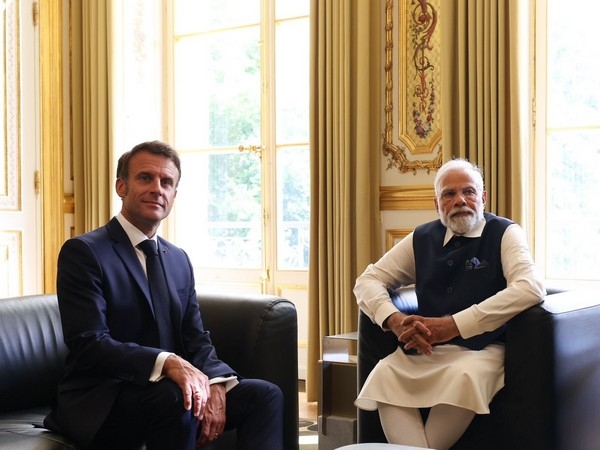NITI Aayog proposes tax holiday for electronics manufacturers. Will it work?

- India imports 65% of its current demand for electronic goods, which contributes to 27% of the country\'s trade deficit
- Electronics are India\'s No.2 imports, and are expected to surpass current No.1 petroleum products by 2020
- Government think tank NITI Aayog has proposed a 10-year tax holiday for firms that invest $1 billion in electronics manufacturing
- India\'s consumption is expected to grow from $125 billion to $400 billion in the next four years
- Do tax holidays really make a difference to manufacturing?
- The question of players already present in India - will they be at a disadvantage?
NITI Aayog - the government's top think tank - has proposed a 10-year tax holiday for firms that invest $1 billion or more in the electronics manufacturing sector in India.
The proposal seeks to attract companies like Samsung, Xiaomi, Apple and Hitachi, among others, to set up their plants in India.
India imports 65% of its current demand for electronic goods. And this particular sector contributes 27% of the country's trade deficit.
Electronic items are now the second-most valued category of imports after petroleum products, and industry estimates suggest that India's electronics import bill is likely to surpass its oil import expenses by 2020.
Also read- Where does your iPhone go to die? Read. And be afraid
According to a report by EY, published in April 2015, the global electronics industry is at US$1.8 trillion, of which India consumes around US$125 billion.
This consumption is expected to grow to $400 billion by 2020, with a local production of only $104 billion given current conditions.
But the big question here that needs to be asked is, are tax holidays the best way to attract foreign companies to invest in India?
The trouble with tax holidays
Most developing countries give tax holidays to attract investments, but not every country succeeds in getting investments.
For example, India gave tax holidays in the oil sector for seven years. Yet, the incentive has failed to give a push to investment in the sector, and till date, India remains heavily dependent on imports (80%) to meet its energy demands.
Another fallout of a tax holiday-based system is that companies remain invested only so long as they can reap the benefits of tax holidays. By the end of the tax holiday tenure, companies start pressurising the government to increase the duration of tax holidays, or move out of those places.
Software Technology Parks (STP) are a prime example of such a situation. They enjoyed tax holidays till 2011. But when the government ended the tax holidays for STPs, a lot of companies shifted their bases out of those STPs to the Special Economic Zones that enjoyed tax benefits.
This cycle of never-ending tax holidays ensures that the government does not get any revenue from the businesses.
Past benefits that have failed
In 2012, the Government of India, under the Modified Special Incentive Package Scheme (M-SIPS), had given certain incentives to companies to invest in India's electronics sector.
Under the scheme, companies that invested in special economic zones (SEZs) were offered 20% subsidy on capital expenditure; those operating outside SEZs were given 25% support.
Despite such incentives, India did not attract much investment.
Ashok Desai, economist and former chief consultant to the Ministry of Finance, emphasises the need for tax incentives, despite the various problems attached to them. However, he is against any kind of discrimination on the basis of investment size.
"Tax incentives are important to attract industry, but they should not be given only to big players. This kind of cap of $1 billion will create discrimination between smaller and bigger players, which will create problems for the sector," Desai said.
Desai's apprehension is reflected in an EY report that says in India, "AC manufacturing is a challenge as there is no compressor manufacturer, and 65-75% components are imported... Similarly for TVs, most components are imported and only last-mile assembly [occurs] in India."
According to Desai, to create an eco-system for manufacturing, the country should be able to attract all types of companies. Just having big companies is not enough, as they have to source most of their components from smaller companies.
Disadvantage to existing players
Another fear that comes with any kind of tax holiday is the disadvantage to the existing players.
An official at a consumer durable company, requesting anonymity, said: "Tax holidays should not give unfair advantage only to the new bi players. If my company has already made a big investment and we do not have plans to invest around $1 billion over the next few years, our products should not become expensive in the absence of tax benefits to us. The government should consider our case as well."
Consumer electronics is a huge market, and local manufacturing of electronic products is important for the Make in India mission. But, given past experiences with tax holidays, the government must ensure that such schemes are well thought out, and do not fail to achieve its target of making India self-reliant, when it comes to meeting domestic demand.
Edited by Shreyas Sharma
More in Catch:
#Modi2: 5 chords PM Narendra Modi hit right with Make in India
Make in India Week gets Rs 15.2 lakh crore investment commitments; Maharashtra bags more than 50%
Moody lauds Modi's 'Make in India' campaign First published: 6 June 2016, 9:48 IST






![BJP's Kapil Mishra recreates Shankar Mahadevan’s ‘Breathless’ song to highlight Delhi pollution [WATCH] BJP's Kapil Mishra recreates Shankar Mahadevan’s ‘Breathless’ song to highlight Delhi pollution [WATCH]](https://images.catchnews.com/upload/2022/11/03/kapil-mishra_240884_300x172.png)

![Anupam Kher shares pictures of his toned body on 67th birthday [MUST SEE] Anupam Kher shares pictures of his toned body on 67th birthday [MUST SEE]](https://images.catchnews.com/upload/2022/03/07/Anupam_kher_231145_300x172.jpg)






